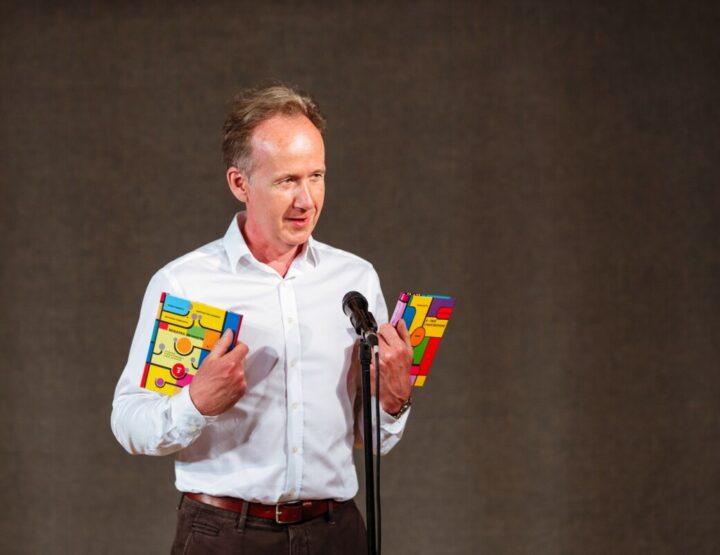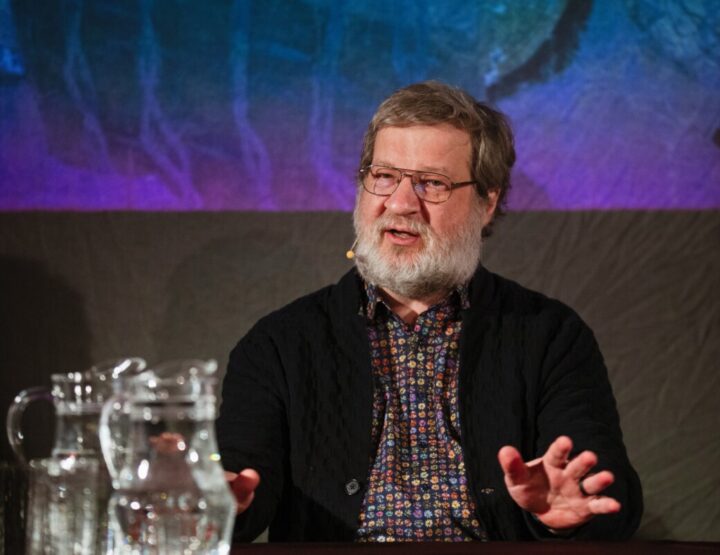On 31 May 2002 the Estonian Writers’ Union hosted an international round table and seminar, “Authors’ Rights”. The seminar was financed within the framework of the European Union’s “Culture 2000” projects.
The general title of the project that included Finland, the three Baltic states, Sweden and Germany, was “The Baltic Ring”. In addition to the Tallinn undertaking, two major seminars took place in Finland and one in Germany. The seminar was dedicated to the European Writers’ Congress on the occasion of its 25th anniversary. The Estonian Writers’ Union has been a member for 10 years. Some of the leading experts in Europe were able to attend the Tallinn event: EWC vice president Maureen Duffy from England and secretary-general Lore Schultz-Wild from Germany; British Public Lending Right co-ordinator James Parker; KOPINOR deputy chairman Hans-Petter Fuglerund from Norway; chairman of the Council of the Swedish Creative Associations Peter Curman; chairman of the Finnish Writers’ Union Jarkko Laine; observers from Latvia and Lithuania; Kalli Klement, head of the Nordic Council of Ministers’ Information Bureau in Tallinn, former long-time director of Swedish Public Lending Right Foundation. The undersigned kept a friendly eye on the proceedings.
Due to the natural development of the new, post-soviet, society and the increasing contacts with the rest of the world, Estonian authors, primarily writers, have come to realise the need, besides obvious duties, to spell out to themselves, to politicians and to society in general the rights that authors have. Some of these have already been accepted in Estonian politics, at least in principle, and need only their own system to come into operation. The most significant of these are the public lending right and reprography right, long valid in many European countries. Quite novel also to European politicians is the area known as authors’ communal right or domaine public payant. When successful, it means a small, practically symbolic sum of money to be paid for new editions of, for example, Homer, Shakespeare or Goethe that would enable the building up of an international foundation for the common good of writers (e.g. social benefits for the elderly). One of the most significant rights are the authors’ rights that have, in our times of virtual reality, become increasingly complicated. Also important is the blank tape levy and the structure of its payment – the collecting societies. In many smaller countries comparable with Estonia (Luxembourg, Ireland, Slovenia), creative people in general are looked after rather well, and provided with certain social support. We have tried to do something similar also in Estonia. The seminar naturally tackled the attempts here to promote the law of creative people and associations, something that we have been doing for two years and which could mean that such a law may be realised next year. This would produce a basic security system primarily for the freelance creators in the classical field of fine arts. When we will have reached this aim, it will be worth while to talk about it at greater length also on the pages of this magazine.
Discussions covered an extensive range of topics, because the seminar did not consist of the reading of papers, but comprised a free and improvisational dispute between specialists. The only thing missing was the presence of the authors themselves who should have participated in the discussion, the motto of which could have been nostra res agitur.
© ELM no 15, autumn 2002



